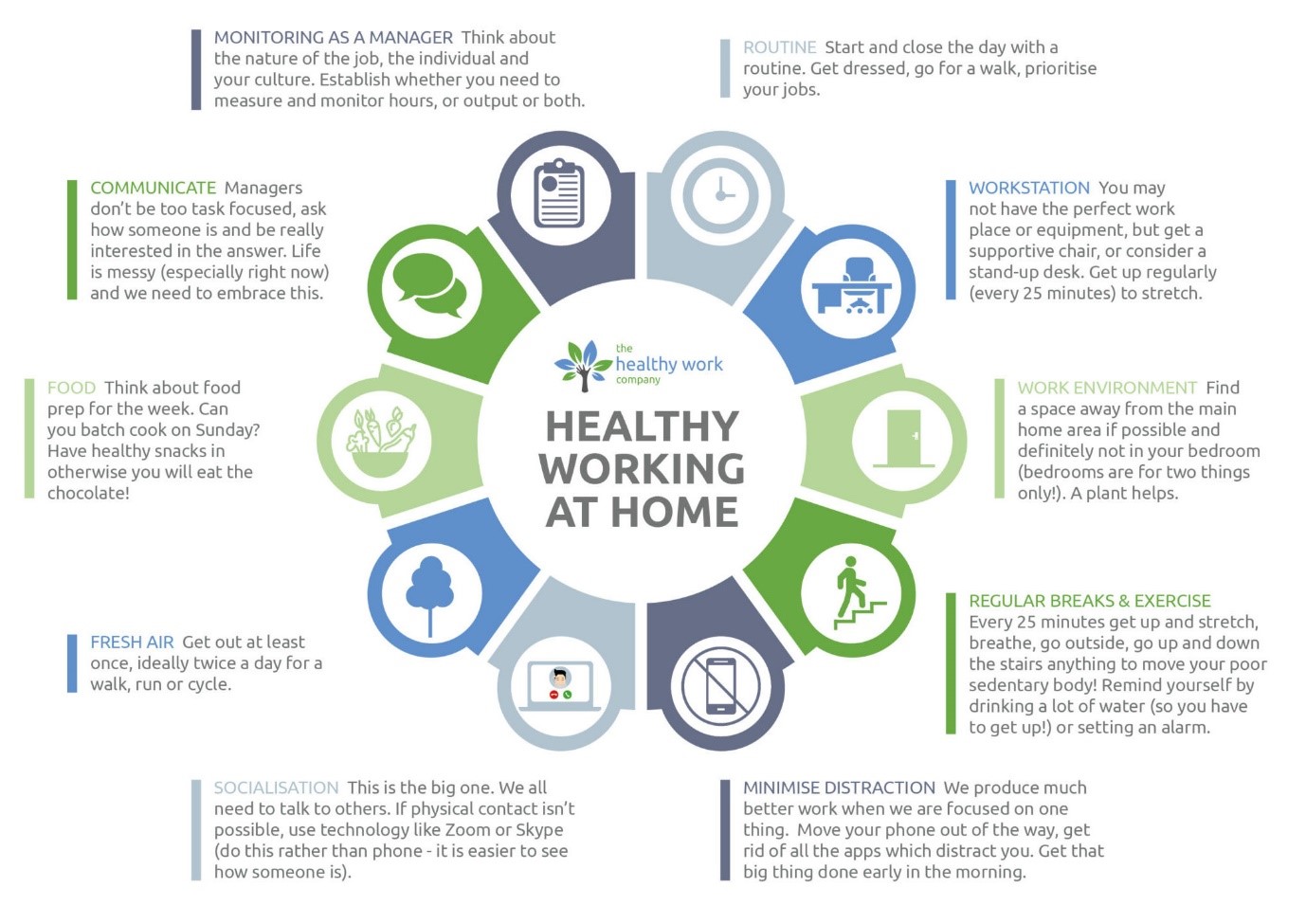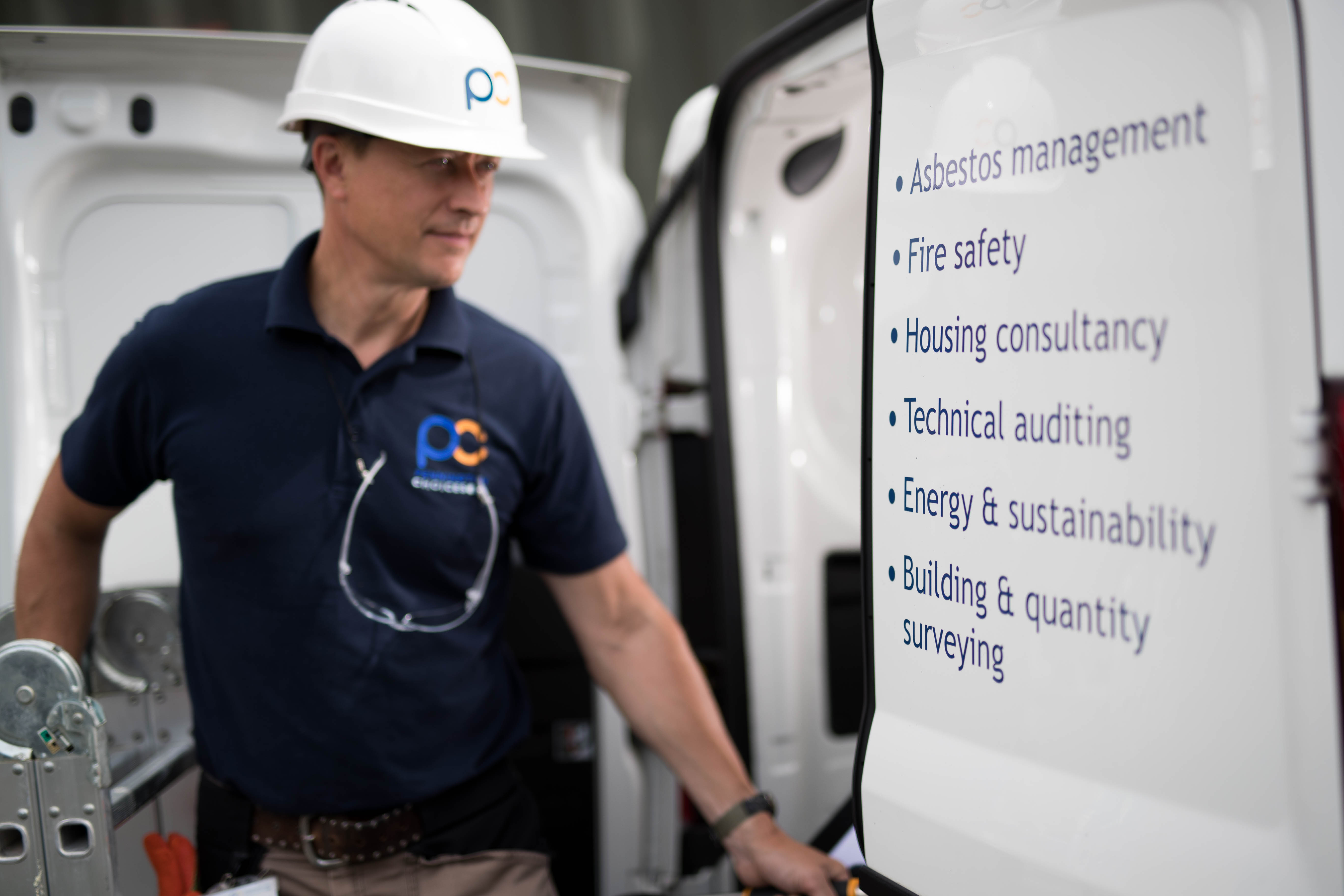Sign up to our newsletter
In light of the current global situation around Coronavirus, many of us will need to rethink our working practices and consider working from home in order to help keep ourselves and others safe. Whilst remote working is common practice in some businesses, for many others, working from home may be uncharted territory. So, what should employers consider when thinking about this way of working?
Firstly, as an employer, you hold the same health and safety responsibilities for home workers as for any other workers.
When an employee is working from home temporarily, it is important that as an employer you consider:
- How will you keep in touch with them?
- What work activity will they be doing?
- Can the work be done safely?
- Do you need to put control measures in place to protect them?
Lone working without supervision
For many, the requirement to work from home will be the first time that they have worked alone, and because there will be no direct supervision or anyone to help them if things go wrong, they are at a greater risk.
To address this it is important to keep in touch with lone workers. If contact is poor, workers may feel disconnected, isolated or abandoned, which can affect the stress levels and mental health of individuals. However, by maintaining regular contact with lone workers and those working from home, you can make sure they are healthy and safe.
Working with display screen equipment (DSE)
There is no increased risk from working with DSE for those individuals that are working at home temporarily, so employers do not need to perform home workstation assessments.
However, now that the country has gone into lockdown and employees up and down the country are likely to be working from home for longer periods, you should consider providing these workers with advice on completing their own basic assessment at home. The Health and Safety Executive (HSE) have created a useful guide and assessment form which can be found here.
There are also a number of other simple steps that you can suggest to help to reduce the risks from display screen work, these include:
- Taking regular breaks. Break up long spells of DSE work with small, five minute rests every hour or by moving on to another activity.
- Do not be stationary. Avoid awkward, static postures by regularly changing position.
- Keep active. Make sure to regularly get up and move around or practice stretching exercises. For workers that regularly use mobile phones, you could take the opportunity when on a call to get up and walk around the house or garden.
- Avoid straining your eyes. You can prevent eye fatigue by changing focus or by blinking from time to time.
Specialised DSE equipment needs
Employers are not required to provide a in their employee’s home, however, you should try to meet the needs of your employees where possible. For example:
- Allowing employees to take equipment home when required or of that when it is beneficial. This could be anything from keyboards to computer screens.
- For larger items such as ergonomic chairs or height adjustable desks, you could encourage workers to try other ways of creating a comfortable working environment, such as by using supportive cushions etc.
Stress and mental health
Home working can often cause work-related stress and affect people’s mental health. This is because employees can start to feel isolated, and by being away from managers and colleagues it can make it difficult to get proper support. Therefore, you must ensure that your employees:
- Keep in touch - e.g. encouraging individuals to have regular contact with other members of staff.
- Have direct contact with yourself or their line managers so that signs of stress can be recognised as early as possible.
- Have an emergency point of contact so that people know how to get help if they need it.
For employers considering how to get the best out of their staff, whilst keeping them safe when they are working from home, the guide below from The Healthy Work provides useful advice:

How Pennington Choices can help…
At Pennington Choices, we have over 15 years’ of experience providing occupational health and safety services to clients of all different sizes across a range of sectors and disciplines. Our expert and qualified Health and Safety Consultants can help you by providing pragmatic, competent advice to assist you with a range of Health and Safety matters.
How can I get in touch to find out more?
If you would like to find out more about our Health and Safety Competent Person service, you can get in touch with our experts today. This can be done either via email consultancyteam@pennington.org.uk or by calling 0800 883 0334.
.webp?width=600&height=150&name=Pennington%20Choices%20Logo%20(reduced).webp)




